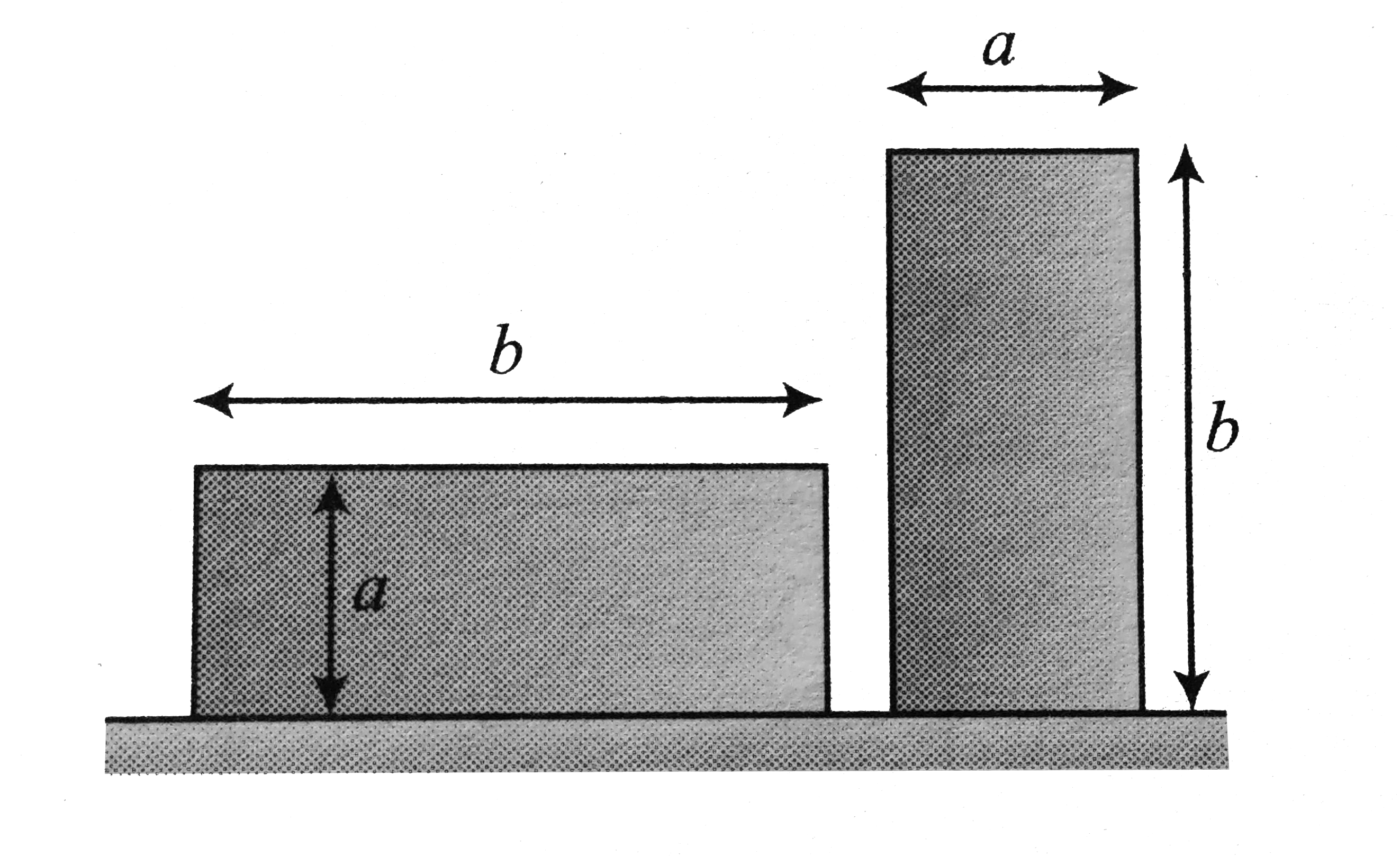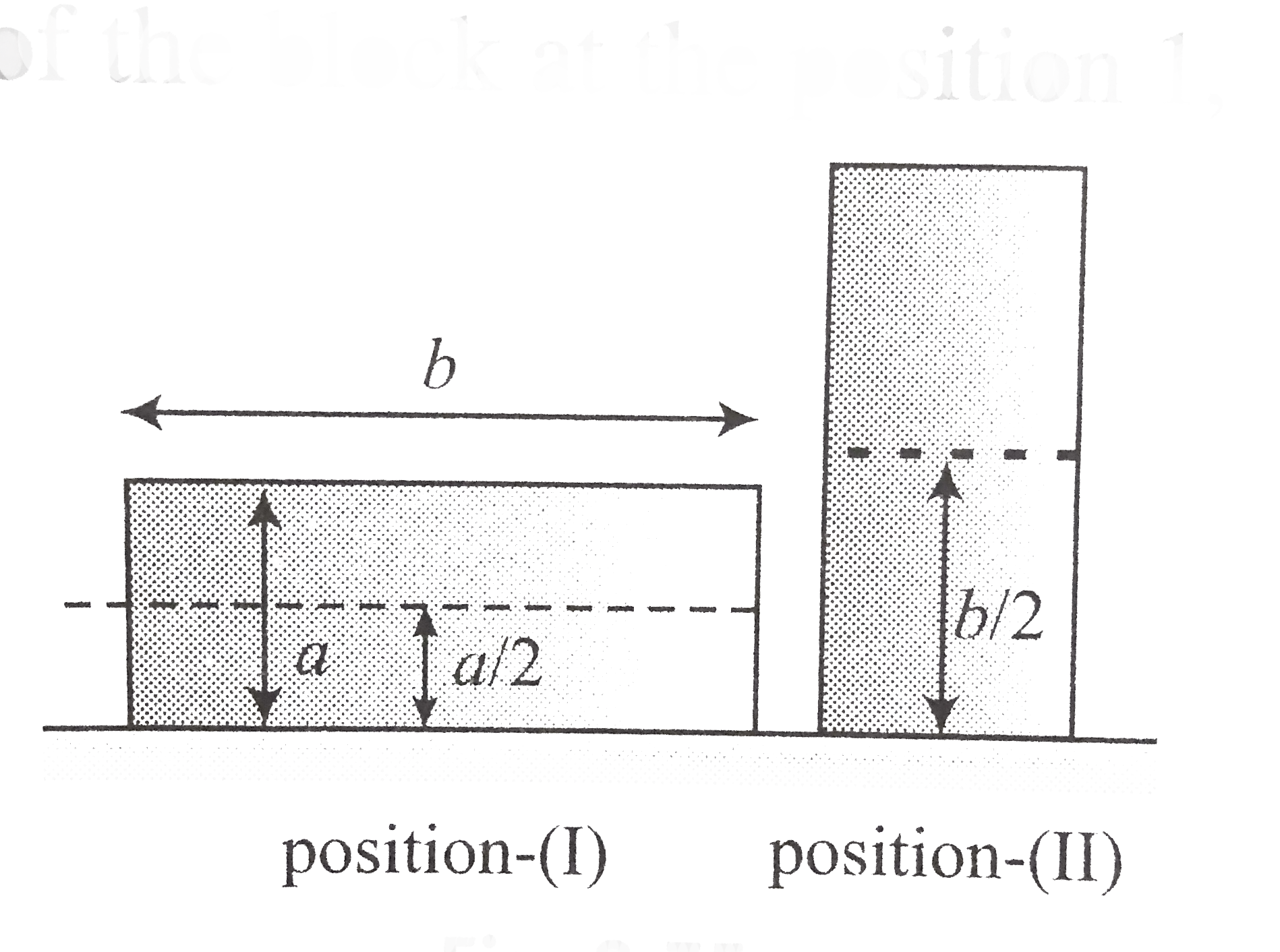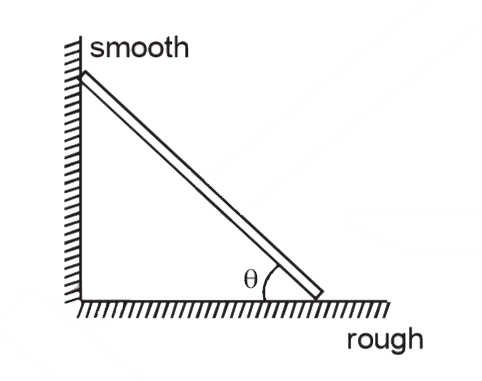A plate of mass m, length b, and breadth a is initially lying on a horizontal floor with length parallel to the floor and breath perpendicular to the floor. Find the work done to erect it on its breadth.

Taking earth surface as reference point. Gravitational potential energy of the block at the position 1,

U1=mgh1 (i)
Gravitational potential energy of the block at the position 2 is given as
U2=mgh2 (ii)
Thus, work done by the external agent
W=ΔU=(U2−U1)=mgh2−mgh1
where h2=b/2 and h1=a/2 as it is a regular-shaped object.
⇒W=mg(b2−a2)=mg(b−a)2
Topper's Solved these Questions
- WORK, POWER & ENERGYBOOK - CENGAGE PHYSICSCHAPTER - WORK, POWER & ENERGYEXERCISE - Solved Examples
15 Videos
- WORK, POWER & ENERGYBOOK - CENGAGE PHYSICSCHAPTER - WORK, POWER & ENERGYEXERCISE - Exercise 8.1
25 Videos
- VECTORSBOOK - CENGAGE PHYSICSCHAPTER - VECTORSEXERCISE - Exercise Multiple Correct
5 Videos
Similar Questions
A stationary uniform rod of mass 'm', length 'l' leans against a smooth vertical wall making an angle θ with horizontal floor. Find the normal force & frictional force that is exerted by the floor on the rod ?

View SolutionA rod of mass M and length L is kept on a frictionless horizontal floor. A particle of mass m moving perpendicular to the rod with a speed v strikes at the end of the rod and sticks there. Calculate angular velocity acquired by the combined system.
View Solution
Knowledge Check
A rope of length L and mass M is being pulled on a rought horizontal floor by a contact horizontal force F=mg. The force is acting at one end of the rope in the same direction as the length of the rop. The coefficient of kinetic friction between rope and floor is 1/2. Then the tension at the midpoint of the rop is
AMg4B2Mg5CMg8DMg2A meter scale of mass 400gm is lying horizontally on the floor. If it is to be held vertically with one end touching the floor, the work to be done is
A6JB4JC40JD2JA bicycle chain of length 1.6m and of mass 1kg is lying on a horizontal floor. If g=10ms−2, the work done in lifting it with one end touching the floor and the other end 1.6m above the floor is
A10JB3.2JC8JD16J
As shown, there is rotating spotlight at a perpendicular distance h from a horizontal floor. The light revolves at Nrev/min about a horizontal axis perpendicular to the paper. Find the velocity of light spot traveling along the floor.
View SolutionThe length and breadth of a rectangular room are 15 m and 8 m respectively:
(a) Find the perimeter of room.
(b) Find the area of the floor of room.
(c) Find the maximum possible length of the rod that can be put on the floor.
View SolutionA particle of mass m strikes a horizontal smooth floor with velocity u making an angle θ with the floor and rebound with velocity v making an angle θ with the floor. The coefficient of restitution between the particle and the floor is e. Then
View SolutionA rod of mass m and length l is held vertically on a smooth horizontal floor. Now it is released from this position, find the speed of its centre of mass when it makes an angle θ with the vertical.
View SolutionThe M.I. of a rectangular plane lamina of mass M, length 'l' and breadth 'b' about an axis passing through its centre and perpendicular to plane of lamina is
View Solution
